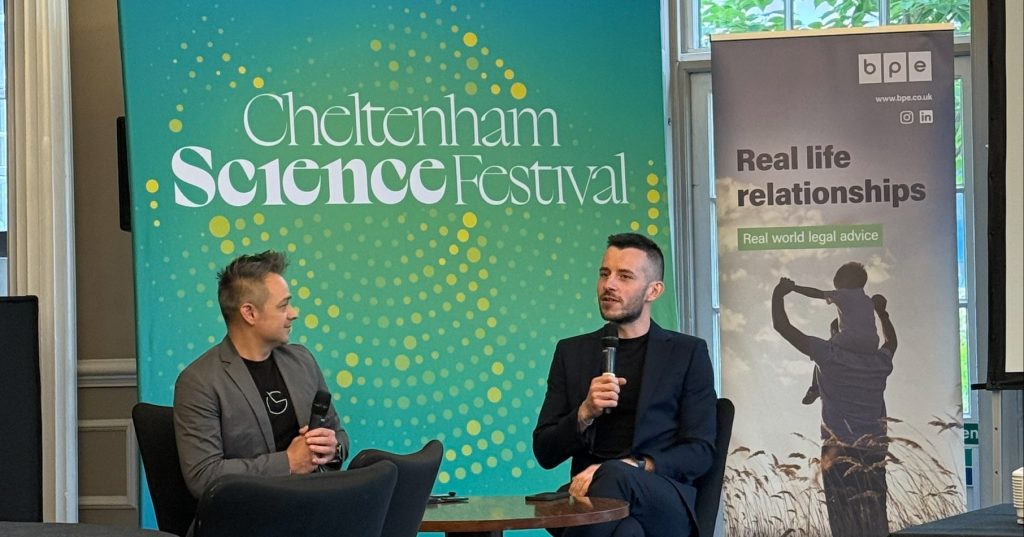Artificial intelligence (AI) is fast becoming integral to legal and commercial practice, and Salford Business School’s Lecturer in Law, Craig Smith, has been at the centre of two high profile conversations this month.
The future of property litigation
On the 4 June, Craig, joined an expert panel at the Northern Conference of the Property Bar Association in Manchester, to examine the impact of artificial intelligence on property law.
“When we talk about ‘AI’ in courtrooms, we’re really talking about a spectrum,” Craig told delegates. “From analytical tools that spot patterns in leases, to emerging agentic systems that can draft documents autonomously, our job as lawyers is to harness these capabilities without surrendering professional judgement.”
Fellow panellists Irwin Mitchell’s Graham Thompson, Brad Pomfret KC and District Judge Banks, explored live issues such as AI hallucinations and whether predictive models might soon forecast case outcomes. A Q&A (question and answer) suggested rising demand for guidance on the technology’s reasoning for hallucinations and exploring potential uses for these predictive technologies.
AI and IP in global markets
Just 24 hours later, Craig addressed the Cheltenham Science Festival Business Breakfast alongside Salford’s Professor Andy Miah, discussing “AI and IP (intellectual property) in global markets.”
They explored everything from whether companies should invest in AI before expanding headcount, to how far generative systems retain memory of user prompts.
“Businesses feel the pull of efficiency, but sustainable advantage will come from AI-enabled people as much as AI itself,” Craig argued. “That means new skills frameworks and universities must lead.”
Andy added: “The world has been transformed by Generative AI and it’s becoming the defining technology of our era. How can you futureproof your career and become a part of this new technological revolution?” Andy explains more in this YouTube video, ‘Generation AI – which generation are you?’
The session also featured a live demo of AIDA, Cheltenham Festivals’ AI science curator, delivered by The Peeps. First unveiled by Festival Director, Marieke Navin, in 2019, AIDA has evolved from a modest neural network experiment into a fixture that now helps shape programme curation and engage visitors in real time. Her seven year journey is a case study in how early, imaginative adoption of AI can move from curiosity to critical utility, illustrating that innovation leadership often begins well before the mainstream catches on.
Here at Salford Business School, we have placed responsible AI at the heart of our curriculum and external engagement. We launched our MSc Managing AI in Business, designed to develop versatile leaders who can harness the power of artificial intelligence, while effectively managing businesses. Beyond teaching, Salford’s researchers advise SMEs (small and medium sized enterprises) through initiatives such as the Greater Manchester AI Foundry and publish on generative AI’s legal and societal impacts.
Professor Katy Mason, Pro Vice Chancellor and Dean of Salford Business School, commented: “The legal profession is set to undergo major changes in the coming years. With this transformation comes the chance to harness new technologies as a force for good. While these innovations bring challenges, our focus must be on helping professionals build the technical skills they need to adopt these tools responsibly. This goal should be central to both our research and our approach to education.”
Liz Larner, Deputy Dean of Salford Business School, added: “Craig’s work this month shows exactly how we turn research into practical guidance. From property litigation to global AI development, we’re equipping organisations to ask not just what AI can do, but what it should do.”
With the UK Government’s pro-innovation AI Action Plan gaining momentum and the EU AI Act about to take effect, our experts here at Salford Business School will continue offering commentary and education to anyone charting this fast-moving terrain.
